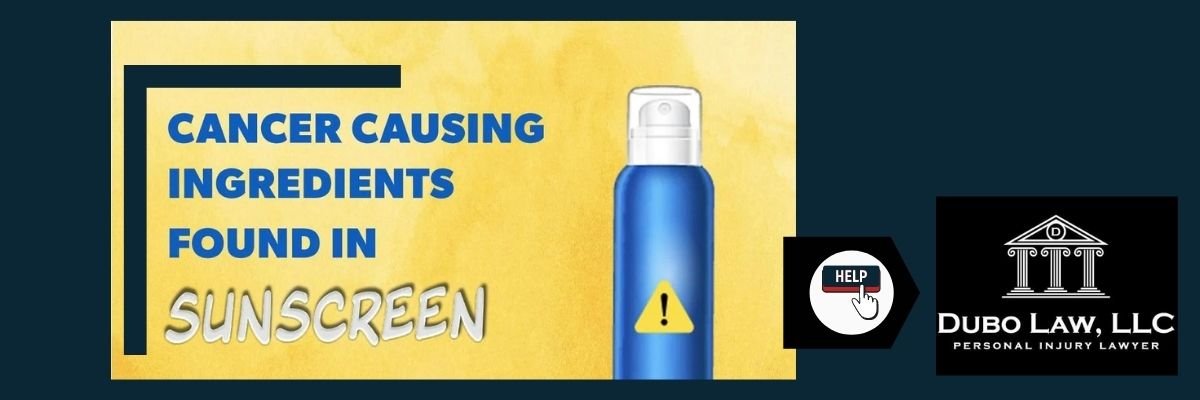
Benzene Sunscreen Lawsuit Attorney
Summary
Sunscreen is a commonly used skin product to protect people’s skin against cancer and skin damage from ultraviolet radiation. However, evidence has emerged that some sunscreen may contain traces of benzene, a toxic chemical linked to cancer in humans.
Many sunscreen products have recently tested positive for benzene, which is a chemical commonly found in paint thinners and gasoline. This fact has led to many demands for product recalls and many questions regarding the safety of sunscreen chemicals. People use sunscreen with the intent to protect their skin, yet according to new studies, they may inadvertently be increasing their risk of developing cancer. Studies have shown that extended and consistent exposure to benzene poses a severe health risk associated with blood tissue cancers such as leukemia, myeloma, and lymphoma. If you used to apply a sunscreen that contains benzene and you’ve been diagnosed with cancer, you might be eligible for filing a sunscreen cancer lawsuit. Please contact us to check whether you qualify for the claim.
FAQ
Can sunscreen cause cancer?
If sunscreen contains benzene, it might cause cancer. Moreover, samples of popular sunscreen brands tested by Valisure detected benzene. Although no studies have been specifically performed on benzene sunscreens and cancer, Valisure stands by the words of Dr. Christopher Bunick, who’s Associate Professor of Dermatology at Yale University, who says that such thing as “safe level of benzene in sunscreen” doesn’t exist.
After applying sunscreen containing benzene, the chemical is absorbed by the body and may cause cancer once entering the bloodstream. According to IARC (International Agency for Research on Cancer), benzene exposure, even at low levels, is linked to the onset of acute lymphocytic leukemia (ALL), non-Hodgkin lymphoma, and multiple myeloma.
What in sunscreen causes cancer?
The industrial chemical benzene has been found in dozens of sunscreen and after-sun care products after laboratory testing by Valisure. Both IARC and EPA (Environmental Protection Agency) have classified benzene as a chemical “carcinogenic to humans.” The FDA (Food and Drug Administration), which is in charge of sunscreen and drug regulations, classifies benzene under a “Class 1 solvent,” which shouldn’t be used in drug substance and drug product manufacturing.
Does sunscreen contain benzene?
Valisure’s research confirms that many regularly used and popular sunscreen brands contain benzene. These brands include:
- Neutrogena
- Banana Boat
- Walgreens
- Coppertone
- Aveeno
- Everyday
- Raw Elements
- Equate
- Sun Bum
- LaRoche-Posay
- Max Block
- CVS Health
- Solimo
- Babygenics
- Fruit of the Earth
- Up & Up
- SunBurnt
- EltaMD
- Goodsense
- TopCare
Valisure analyzed nearly 300 distinct batches from dozens of sunscreen brands, and benzene was found in 78 of them. In fact, 40 products had benzene levels over 0.1 parts per million (ppm), which, according to the study, was sufficient to expose users to exceptionally – and dangerously – high nanogram quantities of benzene.
Is Neutrogena Dangerously Carcinogenic?
Benzene was found in multiple types of Neutrogena sunscreens, including:
- Ultra Sheer Weightless Sunscreen Spray, (SPF 100+)
- CoolDry Sport Water-Resistant Sunscreen Spray (SPF 70)
- Ultra Sheer Body Mist Sunscreen Broad Spectrum (SPF 45)
- Invisible Daily Defense Body Sunscreen Broad Spectrum (SPF 60+)
- Ultra Sheer Weightless Sunscreen Spray, (SPF 70)
- Ultra Sheer Dry-Touch Water Resistant Sunscreen (SPF 70)
- Beach Defense Oil-Free Body Sunscreen Spray, (SPF 100)
- Beach Defense Spray Body Sunscreen (SPF 50)
- Ultra Sheer Body Mist Sunscreen Broad Spectrum (SPF 30)
- CoolDry Sport Water-Resistant Sunscreen Spray (SPF 50);
Johnson & Johnson, the owner of Neutrogena, issued a voluntary recall of some Neutrogena sunscreen products in response to Valisure testing results. However, Johnson & Johnson alleges that none of their products contain benzene and that the recall results from “an abundance of caution.”
Sunscreen is not supposed to cause skin cancer but to prevent it. Serious questions about how benzene ended up in these products remain unanswered, but we can agree that such human carcinogen has no place in any product used on a daily basis, for a lifetime. Have you recently used sunscreen that contains benzene and been diagnosed with cancer? Let our sunscreen cancer lawyers review your claim and find a viable solution for you.
Contact Us for Your Free Case Review!
Address
9515 Deereco Rd, Suite 704
Lutherville-Timonium, MD 21093
Phone
(443) 275-6345
Texting number
(443) 870-4329
Hours of Operation
Monday – Friday: 8:30 AM – 5:00 PM
COVID-19 Update
Your health and safety are important to us. Please be advised that we are open for business during COVID-19 quarantines. All consultations will be conducted either via video chat, phone, or email.
Sign up for our newsletter


